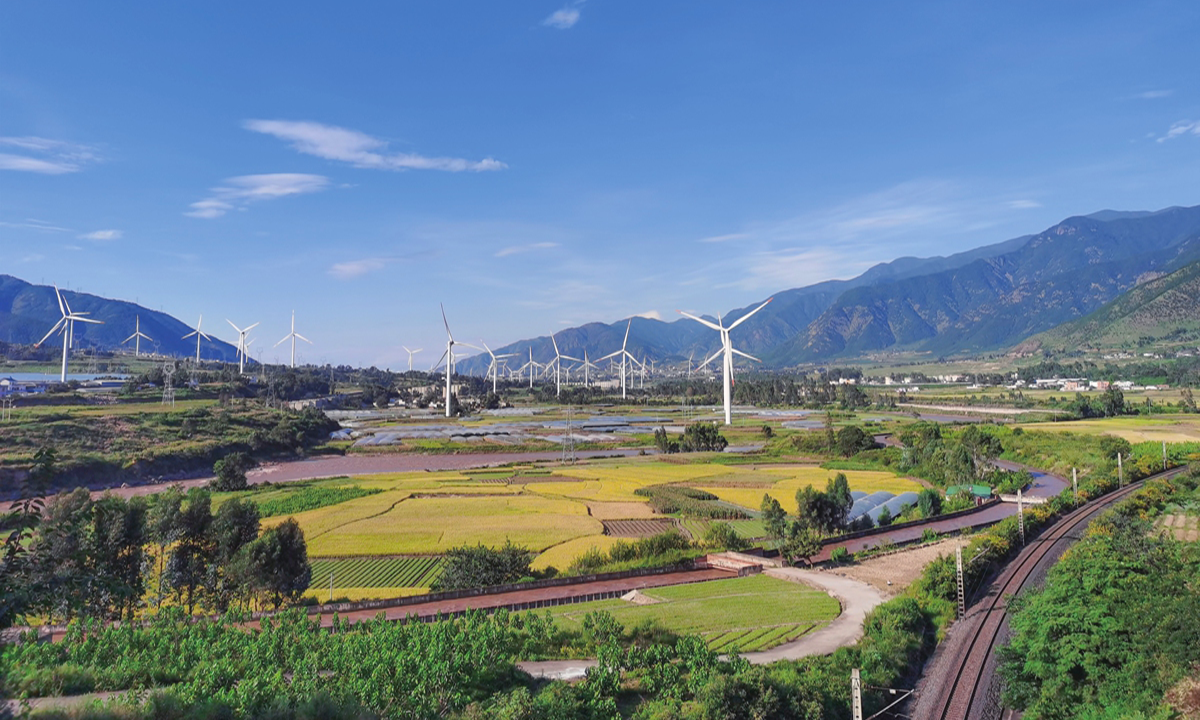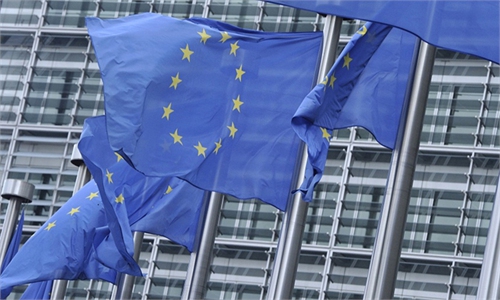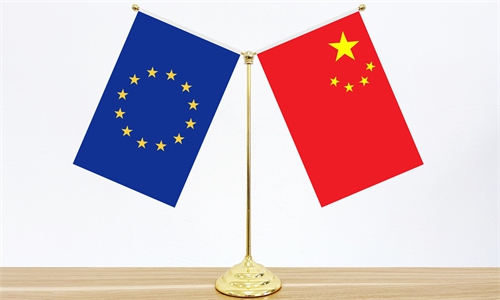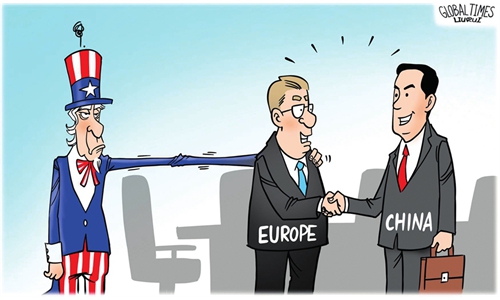EU probe of Chinese wind turbines is economic coercion, will backfire: Chinese chamber
Politically driven action will disrupt normal business operations, add costs: chamber

Wind turbines at Dechang county, Liangshan Yi Autonomous Prefecture in Southwest China's Sichuan Province Photo: IC
China is highly concerned over the EU's discriminatory actions against Chinese companies and even the entire industries, and it is hoped that the European side will not harm global efforts to address climate change, China's Ministry of Foreign Affairs spokesperson Mao Ning said at a press conference on Wednesday.
The remarks were made in response to the EU's decision to probe Chinese wind turbines in several EU countries starting on Tuesday, a move that drew deep concerns from Chinese officials, business groups and experts, who said that it showed the rising tendency of protectionism in the EU. They urged the bloc to stop the wrongdoing, as it will backfire.
The probe, announced by European Commission Executive Vice-president Margrethe Vestager during her visit to the US on Tuesday, became the fourth investigation conducted by the EU under its Foreign Subsidies Regulation (FSR), which analysts see as "a new tool of economic coercion targeting China."
"We are investigating the conditions for the development of wind parks in Spain, in Greece, in France, in Romania and in Bulgaria," Vestager said during her US trip on Tuesday.
"We hope the EU will not keep stressing the importance of fighting climate change on the one hand and yet damage the global efforts to deal with the issue on the other," Mao said on Wednesday, in response to the EU's move.
Protectionism does not solve one's own problems. Protectionism only protects backwardness. It costs the future and results in lose-lose, Mao further noted.
"China's new energy sectors' development is a result of our strong technology, robust market and full-fledged industrial chains," the spokesperson said, adding that China's exports of related products contributed significantly to the global response to inflation and climate change.
"We urge the EU to observe WTO rules and market principles," Mao said, noting that China will firmly protect the lawful rights and interests of Chinese companies.
The EU move raised strong concerns among Chinese business groups in the EU. The China Chamber of Commerce to the EU (CCCEU) expressed "profound dissatisfaction with the lack of transparency in the EU's intervention in the regular business and development of Chinese enterprises in the region," in a statement sent to the Global Times on Wednesday.
These investigations are directed toward the green and clean energy sectors, posing a risk of stifling the outcomes of longstanding investments in research, development and cultivation by Chinese enterprises, the CCCEU said, noting that this results in significantly unfair market competition for the businesses.
In recent years, the EU has stepped up trade protectionism against China.
As one of the latest moves, the European Commission on Wednesday published an updated report on significant state-induced distortions in China's economy.
In February, the EU's antitrust regulator launched an investigation into CRRC, alleging that it had not declared state subsidies it received that enabled its bid to hugely undercut a rival bid from Talgo, a privately owned Spanish rail company, which was the only other bidder.
The move marks the EU's first in-depth investigation under the FSR since the FSR was released in July last year.
"The EU side's continuous deployment of new tools against Chinese enterprises is an act of economic coercion ... it sends a detrimental signal to the world, suggesting discrimination against Chinese enterprises and endorsing protectionism," the CCCEU said, noting that the FSR endows the European Commission with excessive discretion.
The chamber received reports from Chinese companies that, during the FSR investigations, the European side has broadened the definition of "foreign financial contribution," encompassing numerous elements that do not qualify as subsidies.
While deliberately ignoring significant subsidies granted by certain countries to their emerging green industries, the European side has imposed obstacles and market barriers against Chinese enterprises operating in the green sector, the chamber said.
Chinese experts said that there is a clear politically driven motivation behind the probe, with the US taking the lead.
The EU's wind turbine probe, which was announced during the EU deputy head's visit to the US, shows that the EU is eager to prove to the US that it is seeking de-risking targeting China, in line with the US, which once again shows that the US plays its part in the complexity of China-EU economic relations, Cui Hongjian, a professor at the Academy of Regional and Global Governance of the Beijing Foreign Studies University, told the Global Times on Wednesday.
The US has imposed various measures targeting Chinese new-energy products, with the recent launch of Chinese electric vehicles (EVs) under claims of being a so-called national security threat. Experts said that Washington's moves against Chinese green products such as batteries and solar panels may lead to actual trade frictions or even a possible green trade war.
Industry insiders said that the EU's crackdown on Chinese products will backfire as it will add to the costs of its green transformation.
"The EU's move not only contravenes the principles of fair market competition but also undermines the EU's commitment to enhancing international cooperation in global emission reduction and low-carbon coordination," the CCCEU said.
The EU can't make a green transformation without China. A green transformation mainly involves cost-effective controls and the application and popularization of green technology, and China, with its mature industrial chain, has an advantage in this regard that the EU cannot imitate in the short term, Lin Boqiang, director of the China Center for Energy Economics Research at Xiamen University, told the Global Times.
Vicky Pollard, head of the Unit in the European Commission's Directorate General for Climate Action, told the Global Times in a previous interview in March that "by acting together, we can do so at a lower cost and faster, provided there is a level playing field. It's also about more dialogue and learning from each other to develop good policies."
The deployment of renewables such as wind and solar power in the EU and in China is a good example of good policies and the benefits of deployment at scale, said Pollard.
As the green transition enters a pivotal stage, the CCCEU urges the European side to reassess its approaches, recommit to dialogue and cooperation, and endeavor to establish a business environment that is fair, impartial and non-discriminatory toward Chinese enterprises.
"Meanwhile, Chinese companies should continue to uphold their open attitude toward globalization by providing more high-quality and cost-effective products in responding to the world's growing need for green development," Cui said.



